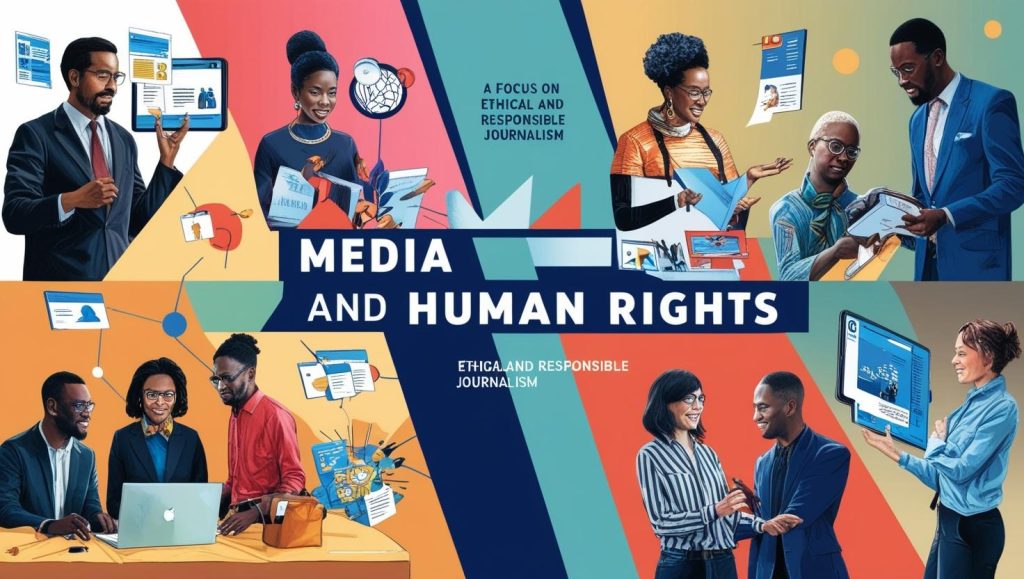Introduction
In today’s digital world, media plays a crucial role in shaping public perceptions and advocating for human rights. Whether through traditional journalism, social media, or digital platforms, the power of media in highlighting injustices, mobilizing support, and influencing policy cannot be overstated. For students studying media and human rights, navigating academic assignments can be challenging. This guide provides comprehensive Media and Human Rights Homework Help, equipping students with key insights, external resources, and expert strategies to excel in their coursework.
The Relationship Between Media and Human Rights
Media serves as both an informant and a watchdog, ensuring that human rights violations do not go unnoticed. Historically, journalism has played a pivotal role in exposing injustices, from the civil rights movement in the United States to modern-day crises such as the Rohingya refugee crisis and the war in Ukraine.

Key Functions of Media in Human Rights
- Informing the Public – Journalism provides factual reporting on human rights issues, ensuring awareness and advocacy.
- Exposing Violations – Investigative journalism uncovers abuses that might otherwise be hidden.
- Advocacy and Mobilization – Media can rally public support, pressuring governments and institutions to act.
- Providing a Voice to the Voiceless – Marginalized communities can share their stories through various media platforms.
Challenges Faced by Journalists Covering Human Rights
Despite its significance, covering human rights issues comes with risks and ethical dilemmas. Journalists face censorship, legal threats, and even violence. According to Reporters Without Borders, many reporters have been imprisoned or killed while uncovering human rights violations.
Common Challenges
- Censorship and Suppression – Some governments control media narratives, preventing exposure of human rights abuses.
- Misinformation and Fake News – The rise of digital media has led to the spread of false information, making it harder to verify facts.
- Threats to Journalists – Many journalists risk their lives to report on human rights violations in oppressive regimes.
How Students Can Use Media for Human Rights Studies
For students seeking Media and Human Rights Homework Help, leveraging media sources can enhance their research and understanding. Here are some practical steps:
1. Utilizing Credible Sources
Use well-established media outlets like:
- BBC News (www.bbc.com)
- The Guardian (www.theguardian.com)
- Human Rights Watch (www.hrw.org)
2. Analyzing Case Studies
Students can examine real-world examples where media has played a role in advocating for human rights, such as:
- The Arab Spring and the role of social media.
- The Black Lives Matter movement and media coverage.
- The #MeToo movement and digital activism.
3. Engaging with Scholarly Articles
Academic databases provide peer-reviewed research on media’s impact on human rights, including:
- Google Scholar (scholar.google.com)
- JSTOR (www.jstor.org)
Ethical Considerations in Media and Human Rights
When engaging with media for human rights advocacy, ethical considerations must be prioritized. Responsible journalism involves:
- Fact-Checking – Verifying information before publication.
- Protecting Sources – Ensuring the safety of whistleblowers and witnesses.
- Avoiding Sensationalism – Reporting human rights issues with sensitivity and accuracy.
Future Trends in Media and Human Rights
The intersection of media and human rights is evolving with technological advancements. Artificial intelligence, virtual reality storytelling, and decentralized platforms are reshaping how human rights issues are reported and consumed.
Emerging Trends
- Citizen Journalism – Social media enables everyday individuals to document and report human rights abuses.
- Data Journalism – Analyzing large datasets to uncover patterns in human rights violations.
- AI in News Reporting – Automating fact-checking and content generation to combat misinformation.
Conclusion
Understanding the role of media in human rights is essential for students pursuing journalism, law, and social sciences. This guide on Media and Human Rights Homework Help has provided insights into key functions, challenges, and ethical considerations in media coverage of human rights. As media continues to evolve, staying informed and critically engaging with sources will empower students to contribute meaningfully to human rights advocacy.


